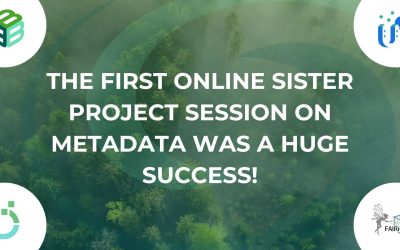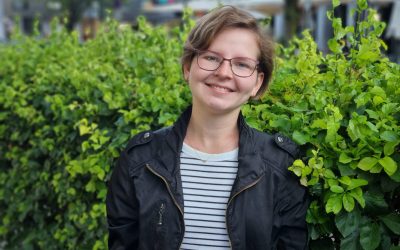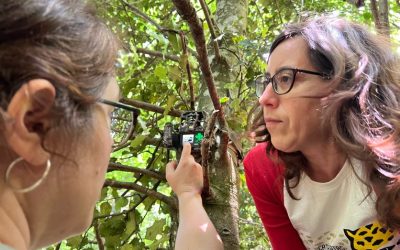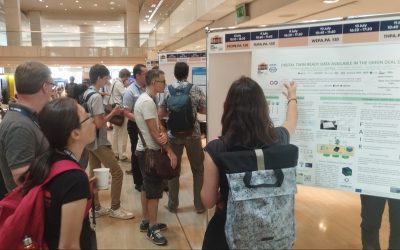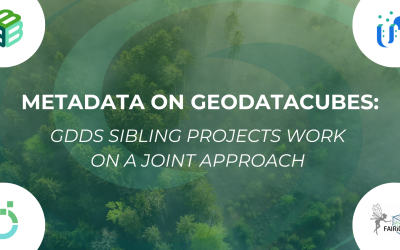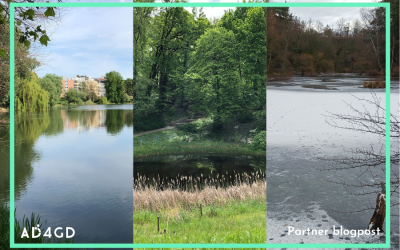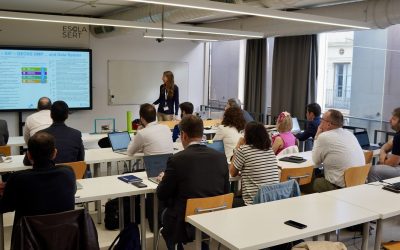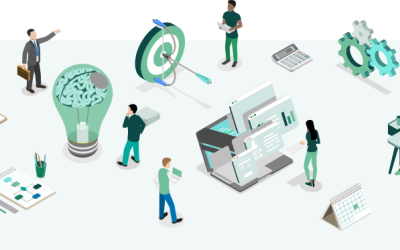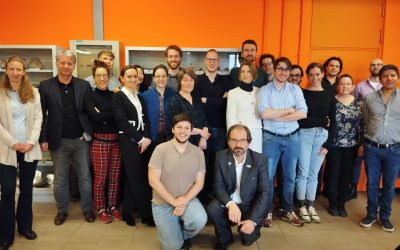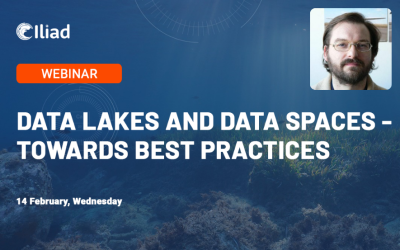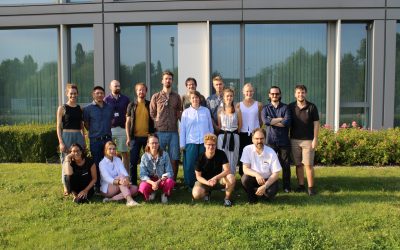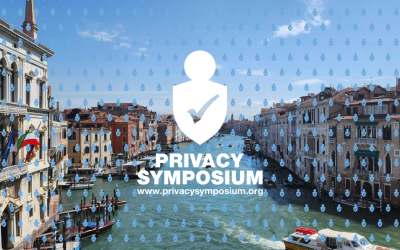Work packages

The AD4GD project is structured to efficiently in 9 Work Packages designed to tackle specific tasks and activities throughout its duration. Each work package plays a pivotal role in contributing to the overall objectives of the project, ensuring a systematic and well-coordinated approach. From data collection and analysis to the development of cutting-edge technologies, these work packages form the backbone of our research.
The diagram represents this organizational scheme. More details on each of these work packages, the entities leading them and their objectives can be found below.
- WP1: Semantic Interoperability Space
- WP2: In situ networks, CitSci, socioeconomic data integration
- WP3: Heterogeneous IoT Data Integration
- WP4: Satellite and Green Data Space Integraton
- WP5: AI for Data Certainty, Quality, Exploitability
- WP6: Pilots, Tests, Validation
- WP7: Standarization, Outreach, Exploitation
- WP8: Project Management and Coordination
- WP9: Ethics
Lead: PSNC
The goal of the WP1 is to deliver a GD Data Space, which will provide interoperability support for the heterogeneous and increasingly growing set of data and services available in the various action areas addressed by the GD (e.g., climate, energy, industry, agriculture and biodiversity) and that will directly contribute towards a European GD Data Space. In particular, this task focuses on the semantic interoperability aspects enabling different systems to exchange data with unambiguous meaning, and to enable an integrated data access for the execution of advanced data analytics (WP5), to support the pilots (WP6). The main objectives of WP1 are the following:
- Identify relevant stakeholders and define the technical and functional requirements concerning data modelling/semantics, data interoperability, federated data management, as well as data analytics, knowledge extraction and decision making in GD ecosystem and in particular in the pilots.
- Design and implement the semantic data model (AD4GD information model) that will provide the basis to enable heterogenous services to interoperate and to integrate data based on different data models.
- Provide methods for extracting, handling and sharing data, including the implementation of general data aggregation/management/integration operations, complying with data privacy and security requirements to ensure proper data usage and exploitation. These methods will be adapted in the data integration WPs (WP2-4).
- Provide a set of open and standardized APIs necessary to provide the core services of the AD4GD ecosystem, which will be based on the AD4GD information model.
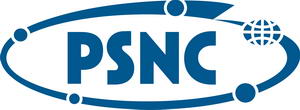
Lead: CREAF
The main objectives of WP2 are the following:
- Identify actors, datasets and workflows from in situ networks, socioeconomic and CitSci data.
- Define how to achieve semantic interoperability in FAIR in situ observations.
- Provide the necessary and standard tools for in situ FAIR data

Lead: IoT Lab
Work Package 3 will realise the following objectives:
-
- To define the technical specification for heterogenous IoT data integration.
- To provide tools to parse heterogenous IoT data based on the specification.
- To define and adjust scalability in function of the needs at the edge.

Lead: ECMWF
Work Package 4 pursues to:
- Enable technical integration new sources of data, particularly IoT and socio-economic data to key existing Earth Observation and Earth-Observation-based data platforms, in interaction with WPs 1, 2 and 3.
- Develop a sandbox environment for testing applications and workflows effectively combining EO or EO-based data with socio-economic and IoT data.
- Support relevant aspects of activities in WPs 5 and 6.
- Evaluate performance aspects especially regarding time-critical applications and applications involving high volumes of data and identify bottleneck areas.

Lead: ATOS-IT
Work package 5, as main objective, has the usage of data analytics and AI methods for several purposes, including to:
- Support the fusion of heterogeneous data coming from diverse sources like IoT devices, statistical information, satellite images or community observations, addressing quality problems and uncertainty.
- Research about the latest advancement in Machine Learning to extract knowledge from massive amounts of data.
- Develop new services powered by Data and AI that improve the capabilities of policymakers and stakeholders in the decision-making process.
- Exploit the capabilities of the computing continuum: IoT devices, edge resources, cloud servers and HPC infrastructures.

Lead: Aston University
WP6 aims to demonstrate the applicability and benefits of the AD4GD data fusion and standardization approach and will specifically:
- Facilitate establishment of cross-disciplinary communities of practice whose data, models and domain-specific terminology are registered in the AD4GD definition server.
- Develop pilot application prototypes deploying the OpenAPI specifications and semantic models.
- Apply AI tools and deep learning to domain-specific data (water pollution, biodiversity, air pollution etc.) to unleash the power of data for better-informed decision making
- Assess the benefit of the common GD data space brought by AD4GD to relevant stakeholders and end-users

Lead: Mandat International
This work package focuses on the impact and outreach of the project, including:
- Successfully implementing the established communication and dissemination plan to guarantee international impact of the project achievements, including:
- Creating and regularly updating project communication channels and dissemination materials;
- Publishing the project results in journals, conferences, and book chapters;
- Designing visual identity, including logos, presentation templates, flyers and rollups.
- Developing a standardization plan and submitting contributions to Standards Development Organizations, as relevant
- Ensuring the exploitation and sustainability of the project results.
- Engaging in global initiatives and collaborate with the sister projects.

Lead: CREAF
The aim of this WP is to create and maintain the conditions to ensure the effective and timely implementation of project goals. It facilitates clear and effective flow of information between consortium members and assure the efficient implementation of project activities with involvement of all partners. Its three main objectives include:
- Ensuring the quality and punctuality of scientific outputs
- Monitoring progress of the planned activities and anticipate as much as possible potential shortfalls and address any problems
- Organizing regular meetings of the Management Board and ensure timely interactions with the EU and the project Advisory Board. It does so by managing the project at 3 levels: strategic/operational, administrative and risk management. The entities involve are: The Project Coordinator, the Management Board (WP leaders) and General Assembly (Project PIs), and the Advisory Board.

Lead: CREAF
This work package sets out the ‘ethics requirements’ that the project must comply with.

Stay tuned with us!
We share all our news & events in our newsletter

